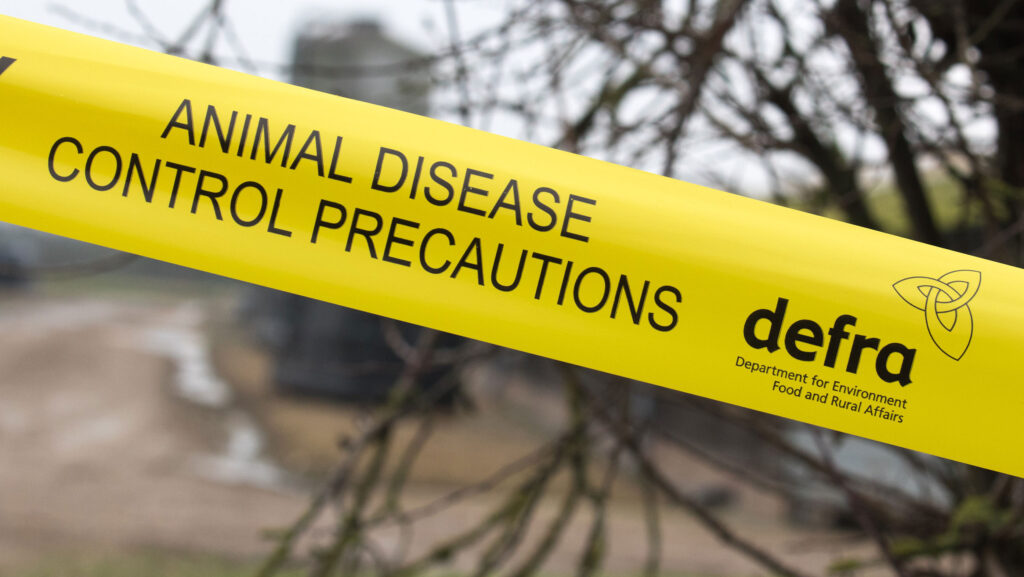Report warns UK is unprepared for major disease outbreaks
 © Tim Scrivener
© Tim Scrivener The UK is not ready for major animal disease outbreaks, say industry leaders, who have raised concerns after a new report revealed the government lacks a long-term strategy for dealing with severe incidents.
A report released on Wednesday (5 November) by the House of Commons Public Accounts Committee warns that Defra and the Animal and Plant Health Agency (Apha) are far from ready to tackle more serious or concurrent outbreaks, and do not have a strategy to address the lack of animal vaccine availability.
Phil Stocker, chief executive of the National Sheep Association (NSA), said: “This is a sobering conclusion, that sadly I have to agree with.
“Threats from ‘exotic’ animal diseases relate closely to poor investment into vaccine development, capacity, and availability, and this too links closely to endemic disease control.”
He added that Britain is missing a major opportunity by failing to invest in and support vaccine production.
“Animal disease resilience is essential for food security and economic success.”
The committee recommends that, within the next year, Apha develops a veterinary workforce strategy aimed at addressing current vet vacancies.
Livestock tracing
Regarding livestock tracing systems, Defra is investing in a multispecies platform, but the report notes that progress has been very slow.
After more than a decade, UK animal tracing is described as “fragmented” and dependent on “creaking systems”.
The report also highlights that the recent increase in illegally imported meat poses a significant and growing threat of introducing new animal diseases.
Between January 2023 and January 2025, Dover saw a fifty-fivefold surge in illegal meat seizures.
Despite this sharp rise, the Dover Port Health Authority is funded to carry out proactive inspections for illegal meat just 20% of the time.
A spokesman from the NPA said: “We wholeheartedly support the committee’s recommendations for the government to build a greater bank of evidence about what is driving this illegal trade and to then allocate funding to those at the border in recognition of the significant costs a major disease outbreak could have in the UK.
“We still have major concerns about how the agencies would cope if we were to contract another notifiable disease. Once again, our question for government is how long can they keep ignoring this risk?”
Bovine TB
The report also raised concerns about recent policy changes in the management of bovine TB.
It noted that “the badger cull, which we understand appears to have been effective in reducing bovine TB, has been largely brought to an end,” and added that “a new cattle vaccine still seems to be several years away, leaving farmers in a difficult situation and facing the risk of TB cases worsening once more”.
NFU president Tom Bradshaw said: “Years of underinvestment in infrastructure, staff shortages and limited veterinary resources, a lack of strategic planning and a failure to embrace digitisation have all placed huge pressure on Apha.
“All while the ongoing pressures of managing bluetongue, avian influenza and bovine TB have further hit staff resource and resilience, leaving little room for long-term planning.”
He added, “Farmers need confidence that Apha can respond swiftly and effectively to disease outbreaks, and right now, that confidence is lacking.”
Response
Richard Lewis, Apha chief executive officer, said: “Our staff work 24/7 to safeguard animal and plant health from a huge range of pests and diseases.
“We have successfully delivered disease outbreak response almost continuously over recent years, including managing the largest outbreak of avian influenza this country has ever experienced and managing the spread of bluetongue disease to protect farmers while giving time for vaccination.
“We welcome this report and will study the findings in detail so that the nation can remain at the forefront of surveillance, diagnostics, research, and rapid response.”
A Defra spokesperson said: “This government’s commitment to maintaining the country’s biosecurity in the face of the mounting risks of disease is unwavering.”
The committee has requested an update in 18 months on the progress in developing a long-term strategy for animal diseases.
